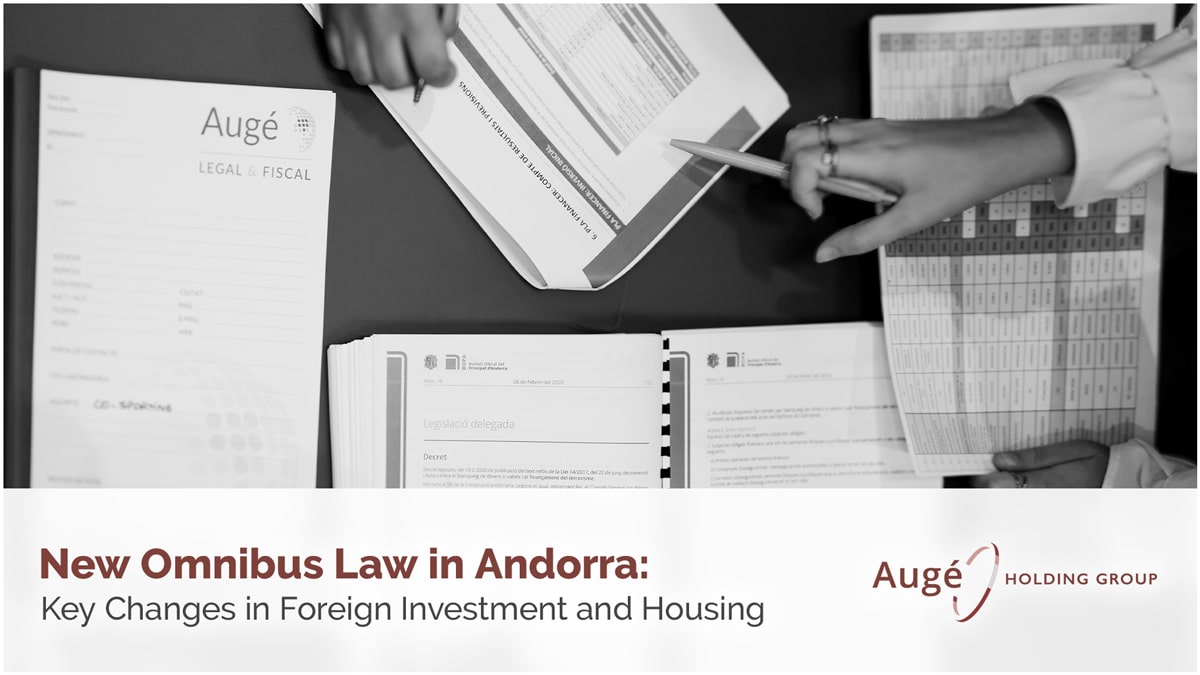Table of contents
ToggleLegislative modifications of the taxation on real estate transactions in the principality of Andorra
For several years now, the issue of housing has been shaking the economies of developed countries, and Andorra is no exception.
Being one of the main issues that have structured the latest electoral campaigns – both at the national and communal level – in 2023, various modifications to tax regulations were announced that, more or less successfully, will come into effect in 2024, directly affecting the transactions of real estate or the rights pertaining to them.
Firstly, it should be noted that the current moratorium in force regarding foreign investments in real estate will end in mid-February when, presumably, a new tax figure linked to foreign investments in real estate with rates ranging from 3% to 10% will be approved. At the moment, we do not have an approved legislative text, so we must be attentive to possible new developments over the coming weeks.
On the other hand, we can talk about a novelty that has been in force since January 1st that aligns Andorra with the countries in its environment: the Tax on Capital Gains in Real Estate Transactions, or IPTPI, which until now taxed exclusively and specifically the capital gains obtained at the time of transferring a property located in Andorran territory, has been eliminated. However, as is the case in the tax system of our southern neighbors, this figure is incorporated within the main direct taxes, that is, Non-Resident Income Tax (IRNR), Personal Income Tax (IRPF), and Corporate Tax (IS):
– In the case of Corporate Tax (IS), we are talking about a 5% surcharge on the capital gain obtained when the transferor has held the property for less than 2 years before the transfer.
– In the case of Personal Income Tax (IRPF), there is an option to reduce the taxation on the capital gain as long as the property has been held for 5 years before the transfer. For example, if we transfer the ownership of a property over which we have held ownership for more than 10 years and we obtain a capital gain, it is considered that this gain should not be integrated into the IRPF tax base. There is also a 5% surcharge when transferring the property in less than two years from its acquisition.
– In the case of Non-Resident Income Tax (IRNR), it is the tax figure that is most affected by the modification, establishing a special rate of 15% when the property is transferred before two years of continuous ownership and 10% in other cases.
The conclusion, therefore, seems clear: the legislator’s objective has been to penalize foreign investment in real estate and, more generally, to encourage the maintenance of property ownership before transferring it in order to reduce the number of transactions.
We will see, therefore, what effects arise in the real estate market from this set of measures that, although penalizing foreign investment, establish tax rates still very limited when comparing Andorra with European jurisdictions.





